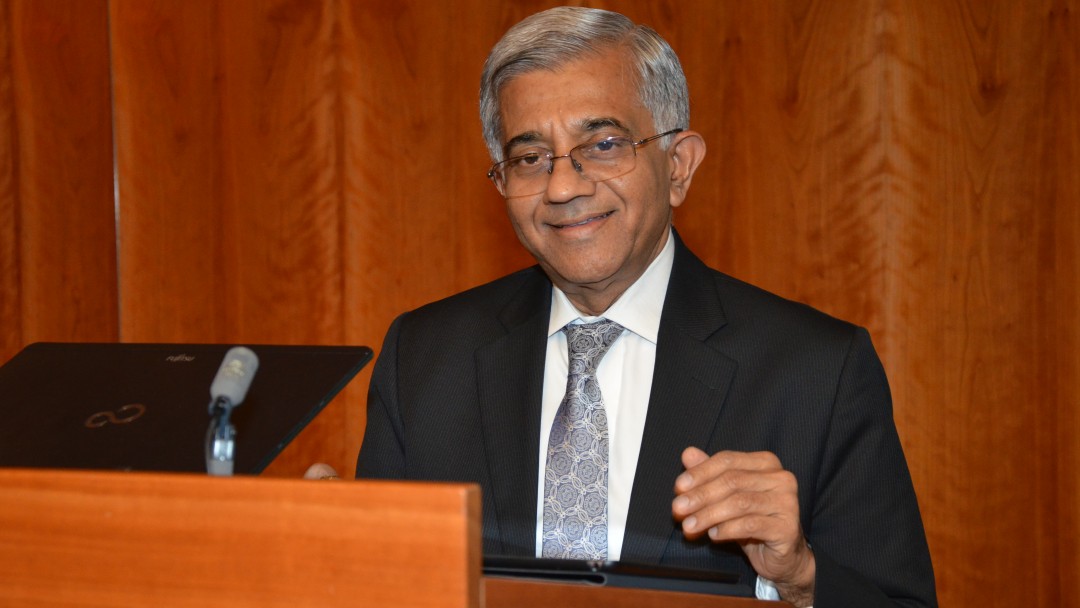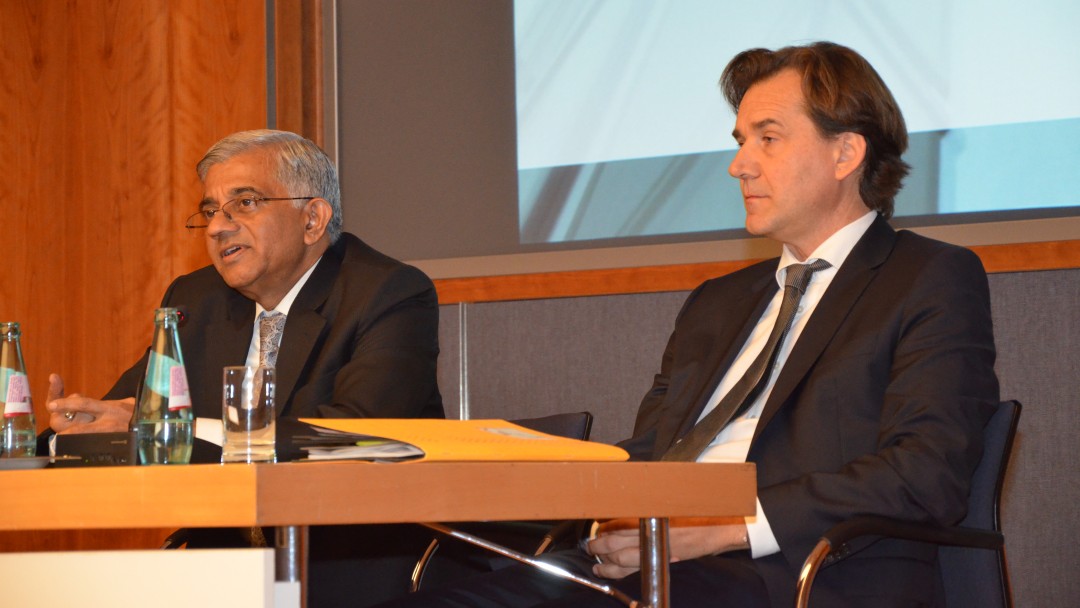News from 2016-10-17 / KfW Development Bank
"Together we can do more"
ADB Vice-President Diwakar Gupta is a guest at KfW
Diwakar Gupta, Vice-President Private Sector and Cofinancing Operations at the Asian Development Bank (ADB), describes the relationship between ADB and KfW as a "partnership of equals". At the Development Forum in Frankfurt, Gupta explained that he expects the private sector to take on a greater role in development projects. Afterwards he signed an agreement on further joint projects with KfW.
Gupta stated that together with KfW, the member states of ADB will be shored up. "Lending volumes continue to grow. In the past it was rare to find a project that required a billion dollars. Today it is not so rare". Gupta, a physics graduate, talked about the close cooperation between the two banks, which three years ago signed a declaration of intent with a lending volume of USD 2 billion. As part of this agreement, six joint projects have been started and two more will be added now. This was formally set down in a contract in Frankfurt on Wednesday. The focal areas of the planned projects are energy and climate. "Two banks together can achieve more", emphasised Gupta. "We expect our fruitful collaboration to continue", stated KfW Senior Vice President Roland Siller.
Expanding the commitment
'What is ADB's position on result-based lending?' was the question posed by one event participant. Gupta described it as a relatively new instrument, which would be applied more extensively in the future as it becomes more familiar.
In future, ADB also intends to expand its involvement in Afghanistan, China, Myanmar, Nepal and Sri Lanka. When questioned, Gupta declared that the smaller member states must be supported in a targeted manner. This cannot be limited to the members of the Board of Directors. The extent of ADB's involvement by sectors came under intense scrutiny too. Gupta explained that in the health sector it was often difficult to find enough "bankable" projects which were suited to ADB's engagement. Governments also need to get involved in such instances. The same is true of agriculture. Land reforms or large irrigation projects are not currently on the agenda of most governments, which is why there are few large projects to be found in this sector, making financing through ADB more difficult.

Education as a future topic
Education on the other hand is a topic of the future, because it is not merely about educating many young people but rather about providing schools and training facilities for this purpose as well. Gupta sees this area as a starting point for projects financed by ADB. "The real challenge lies in identifying the actual needs and then reacting quickly."
The private sector is very interested in committing when it comes to infrastructure. Some 20 to 25 percent of ADB projects could be driven by the private sector. He feels that this could rise to between about 40 and 50 percent through the implementation of ADB's Strategy 2030. For this, ADB needs to become more flexible.


Share page
To share the content of this page with your network, click on one of the icons below.
Note on data protection: When you share content, your personal data is transferred to the selected network.
Data protection
Alternatively, you can also copy the short link: https://www.kfw-entwicklungsbank.de/s/enzBWrMC.Bc5A
Copy link Link copied